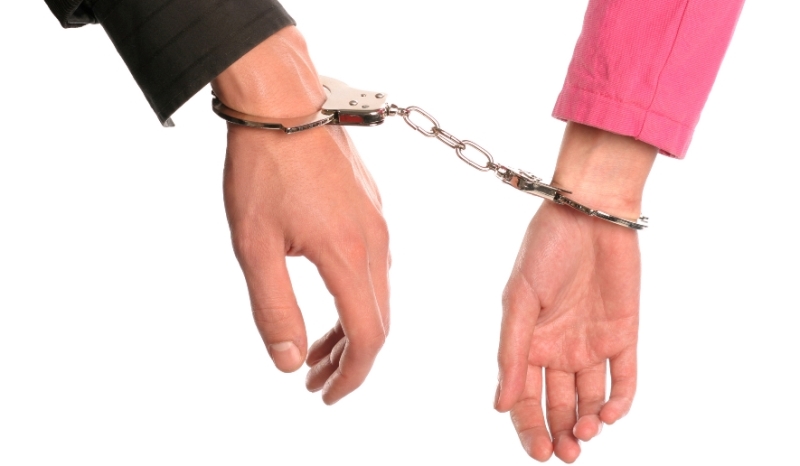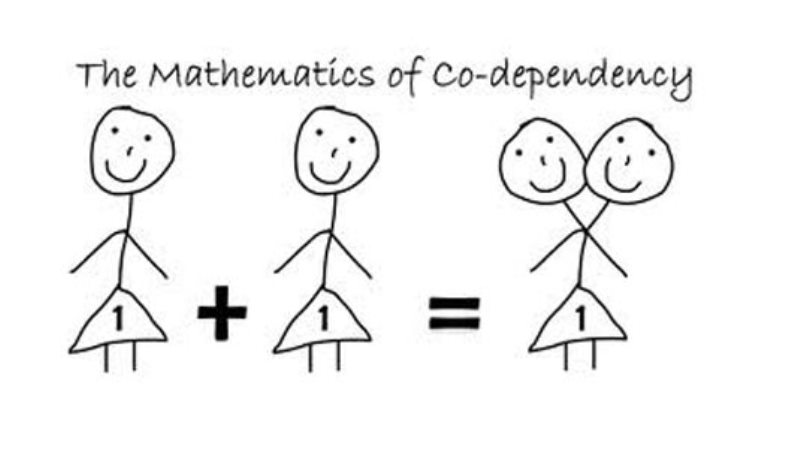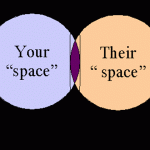Are you unable to find any meaning to life outside of a specific person?
Do you recognize unhealthy behavioral patterns in your partner but stay with him or her in spite of them?
Are you providing support to your partner by discounting your own mental, emotional, and physical health?
Are you sacrificing far too much for meeting your partner’s emotional needs and hardly receive the bare minimum?
If the answer to any/all of these is YES, you are trapped in a codependent relationship.
A codependent relationship is a dysfunctional relationship where one person supports or enables another person’s addiction, poor mental health, immaturity, irresponsibility or underachievement (Wikipedia). This pattern of excessive emotional reliance on another person can be self-defeating and even self-destructive. A codependent relationship usually arises out of a need to seek approval from someone else of your own self-worth and identity. Contrary to popular belief, this pattern of unhealthy clinginess isn’t merely harmful to the partner who exhibits such a pattern of dependence but is also unhealthy for the partner who feels responsible for his/her partner’s happiness. In the process of codependency, not only does the dependent relinquish his/her self-sufficiency or autonomy but the partner also starts to feel responsible for the other’s need for fulfillment. In the process, they either subvert their own needs to please their partner or end up feeling anxiety more than any other ‘healthy’ emotion that ought to be present, by virtue of being in a ‘chosen’ relationship.
A survey of codependent families in California reveals that most people are aware of these self-sabotaging patterns of excessive dependency in their relationships. More than 46% even acknowledge their need for an ‘exit’ but end up staying. Most primal among the reason to cling on is the fear of being alone and an overwhelming sense of responsibility for the fulfillment they offer to their partners.
Codependency symptoms, if left untreated, could get worse. The self-destructive nature of the patterns inherent within a codependent relationship rise exponentially with indulgence over time. But the good news is that they are reversible. Here’s how you can recognize the symptoms, set those much-needed boundaries and thereby, reverse the unhealthy self-destructive patterns:
The early ‘danger flags’
(i) Partner pleasing/people pleasing
Image source: Shutterstock
You go beyond your own means to please other people. Your need for approbation and the fear of any confrontation/rejection or even loneliness tie in closely with your over-the-top ‘I-am-ready-to-be-there-even-if-I-am-limping-coz-I-broke-my-ankle’ behavior. Not only does it negate your own worth as an individual and quantify your self-worth and identity in terms of the relationship dynamic that you have with people around, but it induces a downward spiral of self-annihilation.
(ii) Gauge your self-worth vis-à-vis your relationship with others
If you are consistently focused on your partner’s feelings, much more than you think of your own, are guilty of caring far too much about what he/she thinks of you and adjust your actions/behavior to conform to his/her ‘idea’ of you, you are heading down the codependency path.
(iii) Ignore the red flags
Image source: Google, copyright-free image under Creative Commons License
If you ignore, or worse, live in denial of traits like dishonesty, jealousy or abusive tendencies in your partner, you are likely living in an illusive bubble. As already mentioned, you continue to keep the bubble alive out of fear that the ‘loneliness’ prick that bursts it might hurt too badly.
(iv) Give too much
If you give way too much to your relationship at the expense of self-care and even feel guilty for indulging in ME-time, then there is reason for you to seek help for these symptoms of codependency.
Suggested read: Is setting boundaries in a relationship important?
(v) Have no/poor/ill-defined boundaries
In a codependent relationship, this gets as simplistic as your trouble/inability to say ‘NO.’
(vi) Continue to stay in a relationship with someone who is distant/unavailable/abusive
Image source: Shutterstock
This is where all sense of self-worth is deflated. When you know deep within your soul that your partner may never meet your emotional needs and you hear a voice that asks you to dash toward the exit, you choose to ignore the voice and continue to stay.
Suggested read: How to set boundaries in an abusive relationship
Uprooting the ‘danger flags’/ Reversing the unhealthy
1. Self-examination and re-assessment of your outlook: This is the first step to recovery. Realizing that you are involved in a self-sabotaging and self-defeating relationship, acknowledging it and understanding the various ways in which you are internalizing a tacit acceptance of the fact that being in ‘love’ must necessarily entail pain is a must. Only a complete understanding of your own destructive behavioral patterns can help you progress upon the road to recovery.
Image source: Google, copyright-free image under Creative Commons License
2. Challenging the self-defeating outlook: Challenge the beliefs you have internalized, retaliate against the self-defeating thoughts you have about your self-worth. Your identity is not a function of somebody else’s approval. You don’t need to prove anything to another person about your worth as an individual.
Suggested read: Is it important to retain your identity in a relationship?
3. Overcoming the negativity that fuels your ‘distorted’ idea of self-worth and identity: Once you have had the cudgels to draw up arms against the monsters that were gnawing on your being, it is time for you to shoot ’em down. Notice the destructive effect of your negative self-judgment. Weigh them against a newer, kinder, more compassionate self-assessment, and surprise yourself. You are a lovely human being, capable of love and being loved. You shouldn’t have to morph yourself into something that is draining your life’s essence, only to have another person stay by your side. So, bid that negativity a happy goodbye and embark on a journey of self-discovery and self-love.
Image source: Pixabay, under Creative Commons License
4. Opening up: Most codependency symptoms are a result of some dysfunctional element in the past (a difficult parent/sibling), and as such, professional counsel for some effective ways of purging is necessary. Remind yourself that opening up to others, having friendships outside the ambit of your relationship, seeking help from a counselor/therapist or even family and friends is not a sign of weakness. It takes strength to accept a problem and address it.
Image source: Shutterstock
5. Defeating ‘the fears’ and embracing change: Conquer your fear of rejection/isolation or consequent break-up. Embrace the new winds of change and remember that they are from a happier, healthier land. If your partner is also keen to get his/her life back on an even keel, you may even be able to put the ‘relationship’ as a whole on healthy ground. However, remember to focus on ‘yourself’ first.
6. Focusing on healing: Codependency feeds on your fears. It is a condition that thrives on your emotional weakness. By embarking on a journey of conquering your fears and recovering from that weakness, you are taking charge of transforming your life through healing and personal growth. This new emphasis on self shall boost your self-worth and esteem and enable you to not only visualize yourself in a loving relationship that meets your needs but also attract people who can participate as emotional equals.
7. Taking care of yourself and your needs: Most of all, you shall learn to take care of yourself, which, as I always maintain, is your foremost duty.
Remember that YOU are far too precious to deny yourself and the world the real YOU. J




















